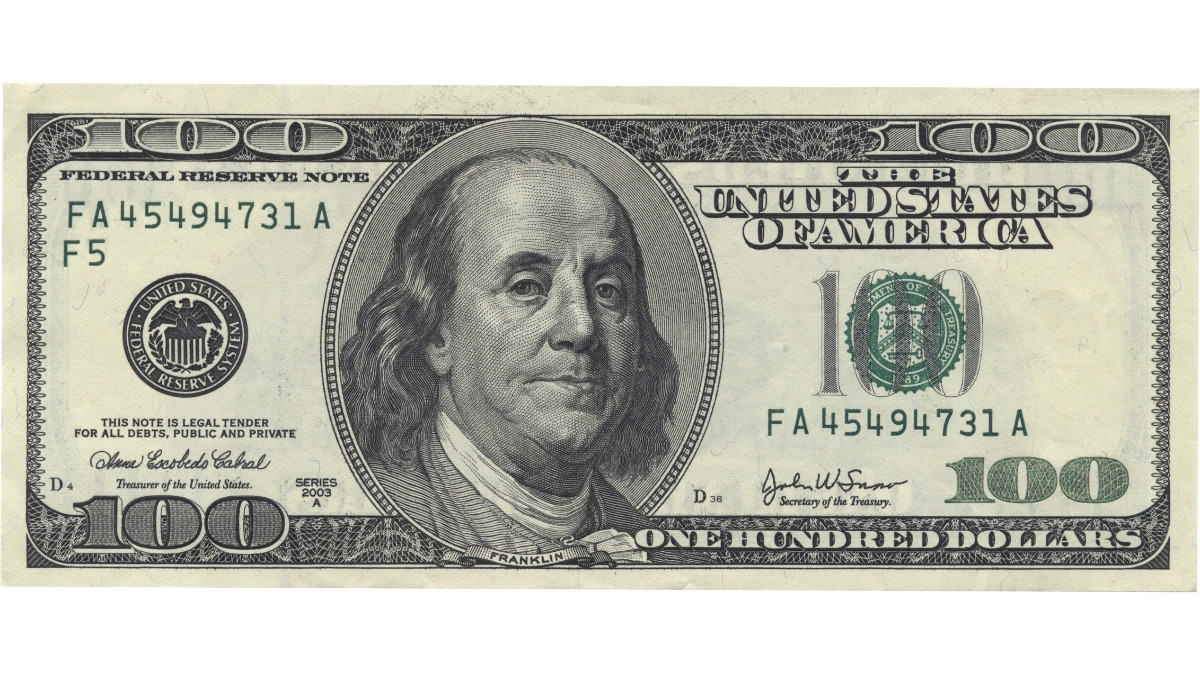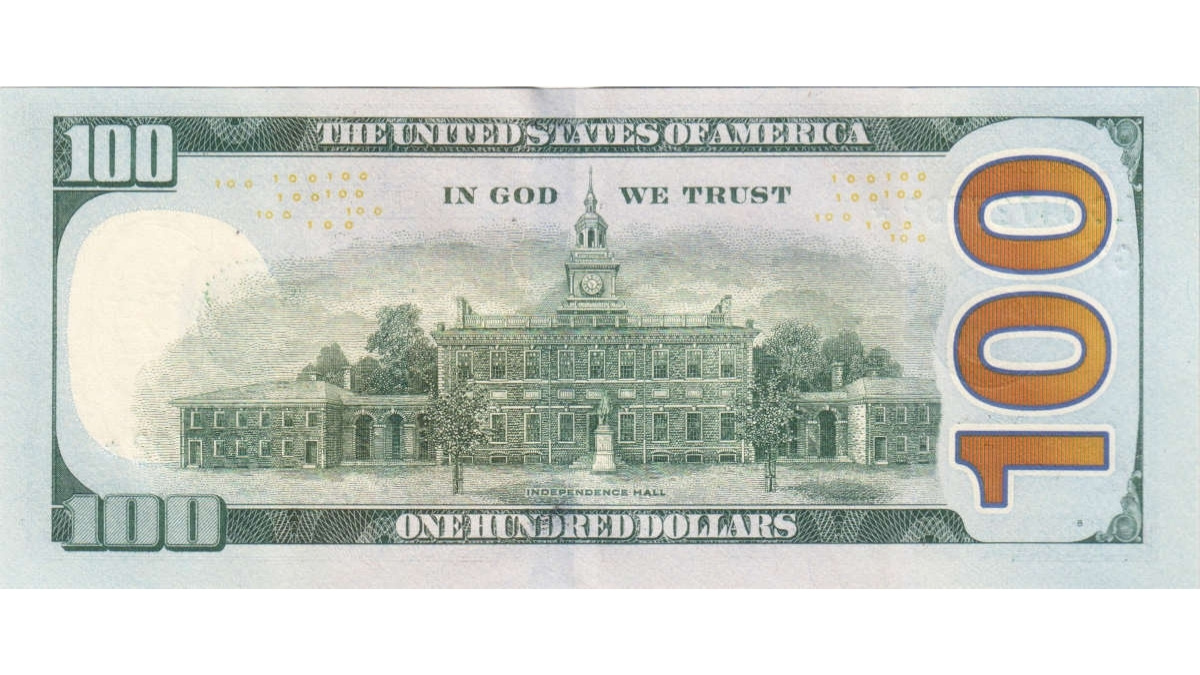The $100 bill is a powerhouse of US currency. But who is on the 100-dollar bill? It's Benjamin Franklin, and it's surprising that he was never a president. This note is not only a sign of wealth; it is also the US banknote with the most value. According to the Federal Reserve, as of year-end 2024, there were over 19.2 billion $100 notes in circulation, worth more than $1.91 trillion. This article explores why Franklin was chosen and the hidden symbols in the note's design.
| Feature | Facts about $100 Bill |
| Portrait (Front) | |
| Vignette (Back) | Independence Hall (Rear View) |
| Issued | 1914 (Franklin first added) |
| Latest Redesign | October 8, 2013 |
| Nickname | "Benjamins," "C-Notes" |
| Key Security Feature | 3D Security Ribbon (Blue) |
Must Read - List of 7 US Currency Denominations still in Circulation
Who is on the $100 Bill?
The face on the modern $100 bill is Benjamin Franklin. His portrait has been the standard for this denomination since 1914.
Many people think that only presidents are on US money, but Franklin is one of only two non-presidents on currently printed bills. The other is Alexander Hamilton on the $10 bill. He is known as one of America's most important Founding Fathers and is known for his work as a statesman, author, scientist, and inventor.
Find Out - Who is on a $50 Bill? Know Why This U.S. President's Face is on Banknotes
Why is Benjamin Franklin on the $100 bill?
So, why is Benjamin Franklin on the $100 bill if he wasn't a president? The choice was deliberate, honoring his vast and unique contributions to the United States.
He was a crucial diplomat, Founding Father, and statesman who signed all four key documents that established the nation: the Declaration of Independence, the Treaty of Alliance with France, the Treaty of Paris, and the U.S. Constitution.
Long before the Revolution, Franklin was a printer who advocated for paper currency. He even printed colonial money and, according to the U.S. Treasury, came up with some of the first ways to stop counterfeiting. This made his presence on the most secure note in the country very fitting.
Franklin is a good symbol for the country's most valuable note because he stands for innovation, intelligence, and the "American Dream" of making it on your own.
Check Out - When was the Declaration of Independence Signed? Know History, Dates, and Key Figures
What are the Symbols on the $100 Bill?
The design of the current $100 bill, which came out in 2013, is full of "symbols of freedom" and some of the best security features in the world.
On the Front of 100 Dollar Bills
-
Quill and Inkwell: You can see a copper-colored inkwell to the right of Franklin's picture. When you tilt the note, you can see a Liberty Bell "appearing" inside the inkwell. It changes from copper to green. There is also a big quill pen, which is like the one that was used to sign the Declaration.
-
Declaration Text: To the right of the portrait is a faintly printed version of the Declaration of Independence.
-
3D Security Ribbon: The paper has this bright blue ribbon woven into it, not printed on it. When you tilt the note, the "100s" and Liberty Bells on the ribbon seem to move side to side or up and down.

On the Back of 100 Dollar Bills
-
Independence Hall: On the back of the 100-dollar bill is a picture of Independence Hall in Philadelphia. It shows the back of the building instead of the more common front view, which is interesting.
-
Large Gold "100": A big, gold number in the back corner makes it easier for people with vision problems to tell what the note is.

Do You Know - Who is on the 2 Dollar Bill? Check History, Symbols, and Facts
More than just money, the $100 bill is a tribute to Benjamin Franklin's genius and a marvel of modern security. Its design tells a story of American independence and ingenuity, securing its place as a global symbol of the U.S. economy.
Comments
All Comments (0)
Join the conversation